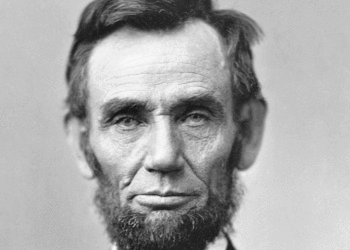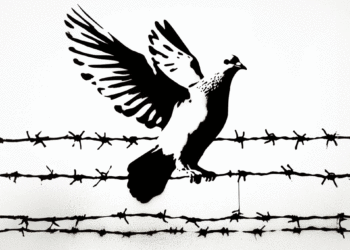By SANDY PAPPAS
ST. PAUL (JTA) — As July ends and we wind down the Three Weeks before Tisha b’Av, we mourn the destruction of both Holy Temples. Unfortunately, this is not the only destruction that bears remembrance.
This August marks the 67th anniversary of the only time that nuclear weapons were ever used in warfare. The United States tested the first nuclear weapon in July 1945 and dropped atomic bombs on Hiroshima and Nagasaki on Aug. 6 and 9 that year.
Opinion
These events spawned the nuclear arms race, with 2,056 nuclear weapons tests conducted worldwide and new and more deadly weapons developed at a fast and furious pace. At the peak of the Cold War there were some 70,000 nuclear weapons.
Even though the numbers of nuclear weapons have decreased since the Cold War, enough of them are still around to blow up the planet. Ninety percent of the weapons are in the United States and Russia. America continues to rely on strategic plans, targeting and alert status settings that were conceived during the Cold War. We also spend billions of dollars each year to maintain our oversized arsenal.
In December 2010, the U.S. Senate approved the ratification of the New Strategic Arms Reduction Treaty (New START) with the support of our military leadership and bipartisan support from 71 senators, including all 12 Jewish senators in office at the time. New START reduced U.S. and Russian nuclear arsenals and established a foundational process for verifying these and future reductions.
It is in America’s best interest to further this nuclear downsizing.
The Obama administration has been working on a plan to establish new policy guidance for the purpose, size and structure of U.S. nuclear weapons. Further reductions and a change in strategies are needed to meet 21st century security needs. As President Obama said in March, “We have more nuclear weapons than we need. I firmly believe that we can ensure the security of the United States and our allies, maintain a strong deterrent against any threat, and still pursue further reductions in our nuclear arsenal.”
Other security experts agree. In April, Gen. James Cartwright, former vice chairman of the Joint Chiefs of Staff and commander of U.S. nuclear forces under President George W. Bush, called for an 80 percent reduction in U.S. and Russian nuclear arsenals. Further, Senate Armed Services Committee chair Sen. Carl Levin, D-Mich., said in June, “I can’t see any reason for having as large an inventory as we are allowed to have under New START, in terms of real threat, potential threat. The more weapons that exist out there, the less secure we are rather than the more secure we are.”
Like Levin, I favor more security and fewer nuclear weapons. American leadership must take action to minimize nuclear dangers. Our nation should lead by example, first urging further reciprocal Russian nuclear reductions, then engaging other nuclear weapons countries to make reductions. We also should ratify the Comprehensive Nuclear Test Ban Treaty to permanently end nuclear testing worldwide. Taking these steps will position the U.S. to effectively lead the world in thwarting new nuclear weapons development and combating nuclear terrorism.
We ushered in the nuclear era 67 years ago. Now we must do our part to help the world find a safe exit.
***
Sandy Pappas, a DFL state senator from St. Paul, is a founding member with her husband, Neal Gosman, of the Shir Tikvah Congregation in Minneapolis.



















